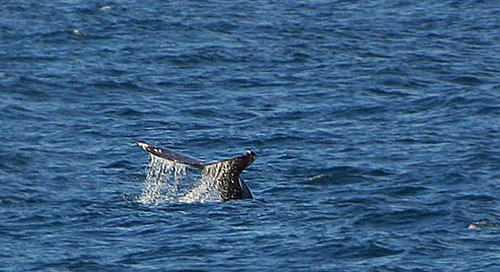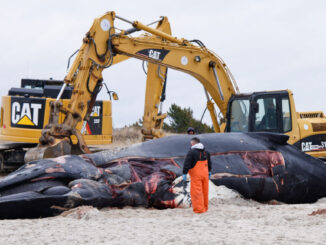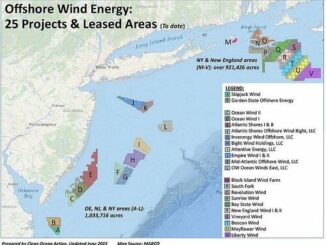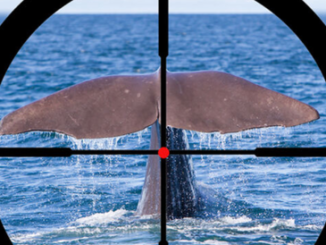
Authored by Nikki Martin & Erik Milito via RealClear Wire,
It’s always a tragedy when whales and dolphins, among the most majestic, intelligent sea creatures on Earth, wash ashore after dying.
A recent spate of whale and dolphin deaths in New Jersey reminded us of this, but what followed was a rush to jump to conclusions and blame activities around offshore wind development – in particular geoscience survey work – for the unfortunate series of deaths, without any evidence.
Elected leaders from the local to national level fired off letters to New Jersey Gov. Phil Murphy, Congress, and the Biden Administration demanding a moratorium on offshore wind construction or seeking information to support blaming offshore wind. One Congressman held a hearing in his state about the matter. Media reports generated wide interest, and many lacked correct information, whether by accident or design.
In all cases, the guilty verdict was in before the coroner’s (necropsy) report was. The rush of finger-pointing could not be more incorrect nor unscientific.
Here’s the verdict of the Marine Mammal Commission, the independent federal body charged with protecting the animals: “Despite several reports in the media, there is no evidence to link these strandings to offshore wind energy development,” the commission said in a recent statement. It described the deaths as “not new, nor are they unique to the U.S. Atlantic coast.”
As we saw, those whales that underwent post-mortems died from vessel strikes or fishing gear entanglement. The Atlantic waters near where the whales washed ashore have heavy ship traffic, heading in and out of the ports of New York and New Jersey and Newark, among America’s busiest.
Plenty of evidence exists that neither offshore wind development nor the geoscience survey work required to safely build them is to blame. Although the direct cause of whale beachings remains a mystery, many are attributed to illness and injuries, storms, and even toxins from algae, to name a few.
As for activities to develop offshore wind as a cause of marine mammal deaths, there is no known connection, regardless of species, according to the National Oceanic and Atmospheric Administration (NOAA) and the Bureau of Ocean Energy Management (BOEM). Further, geoscience activities have been conducted extensively for over six decades around the world without direct harm to marine mammal populations, much less been linked to any strandings.
For example, over 180 humpback whales have stranded along the East Coast since 2016, with 10 or more humpback whales beached each year since then, peaking at 34 in 2017. Offshore wind projects weren’t operating during almost all of that period.
While many gigawatts of wind energy are planned, today there are only seven operational turbines offshore the East Coast. The deaths come as the New Jersey and New York coasts are attracting more whales, in what some attribute to a rebound in their food source.
Ship traffic also has increased up and down the seaboard, which prompted NOAA to propose enforcing a 10-knot speed limit farther from port and for boats as small as 35 feet to limit marine mammal injuries and give whales time to get out of the way.
Offshore survey vessels move under that speed and follow rigorous protocols to ensure all marine life is protected. In fact, geoscience work contributes to the marine sciences and our focus is always on operating in a manner that does the least to disturb the oceans.
The marine mammal deaths in New Jersey are a tragedy, but we will have failed ourselves and those creatures if we do not study what has happened thoroughly. We should let the facts, science, and best available data determine what happened, why, and how, so we may better understand.
Let’s stop letting politics, bad information, and unclear motives muddy the waters.
Nikki Martin is the President of the EnerGeo Alliance.
Erik Milito is the President of the National Ocean Industries Association.
Loading…



